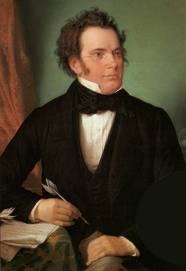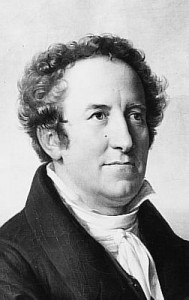SCHUBERT SHADOWS
1M: Johann Michael Vogl
2M: pianist and baritone
“Come to Schober’s day after tomorrow, I shall play you a cycle of frightful songs, I’m curious to see what you will say about them. They have taken more out of me than was ever the case before. Secretly, in my heart of hearts, I still hope to be able to make something out of myself, but who can do anything after Beethoven? Franz” Schubert, about Winterreise
I used not to appreciate lieder, classical song, and now it is my favorite—Schubert is tops. I needed to atone for my early ignorance and get this right, and found a way through Johann Michael Vogl. Johann Michael Vogl?
In 1827 the most famous musician in Europe dies at age 57. Six thousand people, the who’s who of Viennese society, attend his funeral: Ludwig van Beethoven is dead. Franz Schubert, age 30, deathly ill of a combination of syphilis and cholera, has but one year left. Unknown outside a small coterie of friends, Schubert in his remaining months creates masterpiece after masterpiece. The most staggeringly abundant 18 months’ output in music history. With Beethoven’s death, Schubert was freed from the severe and at times paralyzing adoration he had of his mentor. Through this period but one famous person stood by his side, opera singer Johann Michael Vogl.
Thirty years older than Schubert, nonetheless Vogl recognizes that Schubert has revolutionized song—the piano the equal of the voice, a seamless marriage of text and music, an endless stream of 600 songs.
Schubert Shadows? Beethoven, looming death, obscurity, rejection—how did he do it? There are miracles, truly.
Music: Schubert lied


